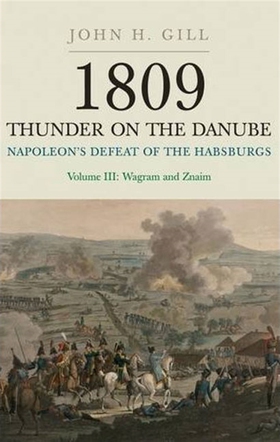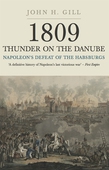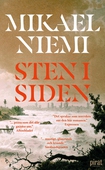
Lägg till önskelistan
1809 Thunder on the Danube. Volume 3 e-bok
Pris
115 kr
With this third volume John Gill brings to a close his magisterial study of the war between Napoleonic France and Habsburg Austria. The account begins with both armies recuperating on the banks of the Danube. As they rest, important action was taking place elsewhere: Eugene won a crucial victory over Johann on the anniversary of Marengo, Prince Poniatowski’s Poles outflanked another Austrian archduke along the Vistula, and Marmont drove an Austrian force out of Dalmatia to join Napoleon...
E-Bok
115 kr
Pris
Förlag
Pen and Sword
Utgiven
15 Februari 2021
Längd
480 sidor
Genrer
Historia & Arkeologi, Samhälle Och Politik, Fackböcker
Språk
English
Format
epub
Kopieringsskydd
Vattenmärkt
ISBN
9781783033546
With this third volume John Gill brings to a close his magisterial study of the war between Napoleonic France and Habsburg Austria. The account begins with both armies recuperating on the banks of the Danube. As they rest, important action was taking place elsewhere: Eugene won a crucial victory over Johann on the anniversary of Marengo, Prince Poniatowski’s Poles outflanked another Austrian archduke along the Vistula, and Marmont drove an Austrian force out of Dalmatia to join Napoleon at Vienna. These campaigns set the stage for the titanic Battle of Wagram.
Second only in scale to the slaughter at Leipzig in 1813, Wagram saw more than 320,000 men and 900 guns locked in two days of fury that ended with an Austrian retreat. The defeat, however, was not complete: Napoleon had to force another engagement before Charles would accept a ceasefire. The battle at Znaim, its true importance often not acknowledged, brought an extended armistice that ended with a peace treaty signed in Vienna.
Gill uses an impressive array of sources in an engaging narrative covering both the politics of emperors and the privations and hardship common soldiers suffered in battle. Enriched with unique illustrations, forty maps, and extraordinary order-of-battle detail, this work concludes an unrivalled English-language study of Napoleon’s last victory.





